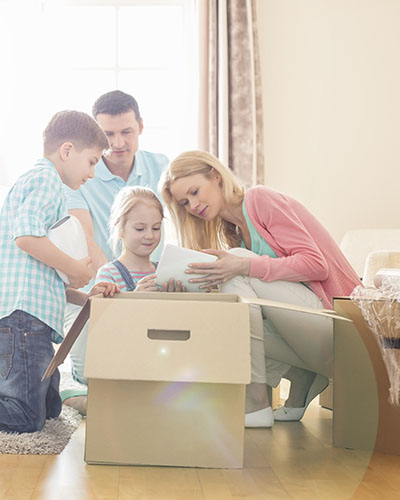
Storage Tips
Secure Self Storage in Wanaka
General Tips
- Use packaging materials such as cartons, porta-robes, paper, tape and bubble wrap to protect and maintain your goods while in storage.
- Fill cartons to capacity as partially full cartons may collapse.
- Do not overfill cartons, as bulging cartons may tip and will be harder to stack.
- Heavy items such as books or tools should be packed in smaller cartons to make them easier to handle.
- Books should be packed flat, not on their spine.
- Label each carton as you pack, so that you can find items easily while in storage. This also makes unpacking easier.
Appliances
- White goods should be thoroughly dry and clean before storing.
- Fridge and freezer doors should be secured slightly ajar to maintain freshness. A deodoriser placed inside the appliance is also a good idea.
- Do not place items inside fridges or freezers as the shelves and linings can be easily marked and damaged.
- Do not store food in fridges and freezers.
Furniture
- The use of drop sheets or similar covers will help protect your furniture.
- Empty wardrobes, cupboards and drawers to protect the shelving and structure of these items of furniture.
- Clothing and personal goods should be packed in strong secure cartons with mothballs, naphthalene, lavender or similar repellent product to help protect your goods.
- A moisture absorbent product should be placed within the storage shed to help protect against damp or mould.
- Where possible, remove legs from tables, beds etc to save space and avoid damage
Crockery & Glassware
- Pack items of crockery into smaller cartons to avoid having cartons which are too heavy to handle.
- Place a layer of packing, such as paper or ribbed cardboard at the bottom and top of cartons containing breakables.
- Wrap fragile items individually in packing paper – avoid the use of newspaper, as it can be very messy.
- Nest cups and bowls; stand plates, saucers, platters and casseroles on their edge.
- Fill any gaps in the cartons with packing such as scrunched up paper or linen.
- Label all cartons containing fragile items and avoid storing heavy items on top of them.
Mirrors, Windows, Screens and Paintings
- Protect these items with packing material such as bubble wrap or in a flat pack carton.
- Store these items upright, standing on their edge; do not lay them flat.
Metal Items
- Wrap silver in non-acidic tissue paper to help reduce tarnishing.
- Wipe chrome or cast iron with a small amount of machine oil; this will help retard rust.
Stereos, Televisions and Videos
- This equipment is very delicate and should be handled with care.
- Wherever possible, use original boxes. If you do not have the original box, wrap items individually in bubble wrap before you pack them in cartons.
- Fill in any gaps in the cartons with paper or linen.
- Secure turntables and tone arms of record players to prevent damage in transit.
- Pack records on their edge in cartons to prevent warping; pack CDs on their edge in individual cases to prevent scratches.
- Plasma televisions should be protected with bubble wrap or a similar protective item and stored upright.
Battery Operated Items
- Remove batteries from these items to avoid damage from leaking batteries.
Computers
- As with electrical items, computers need special care.
- Wherever possible, use original boxes. If you do not have the original box, wrap items in bubble wrap and pack them in good quality cartons.
- Use some packing in the bottom and top of cartons to provide extra protection and fill in any gaps.
- Use masking tape to label ports.
- Make a back up of your hard drive and store the back-up somewhere other than your storage shed.
Mowers and Other Machinery
- Drain fuel and oil from machinery; this will reduce the risk of leakage, spillage and damage to other items in your storage space.
- Petrol and oil left in your machinery are also a fire hazard.
Vehicles
- Store vehicles with minimal fuel.
- Disconnect the battery; this will prolong the life of the battery.



